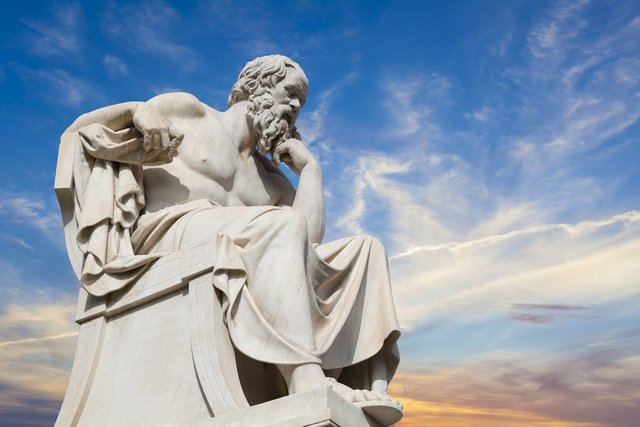Heidegger’s Philosophy in the Light of Life-Creating Humanism

Author: Philosophy PhD, Ljubodrag Simonović, Belgrade (Serbia)
Heidegger’s Philosophy in the Light of Life-Creating Humanism
Translated from Serbian by Vesna Petrović (Todorović)
English translation supervisor Mick Collins
Introduction
In order for a question to be authentic, it has to be a concrete historical question, which means that it should take into consideration the governing tendency in the development of the world. The question of the nature of Martin Heidegger’s philosophy should also be a concrete historical question. It is one thing when a question is asked in a blossoming field and quite the other when it is asked on the brink of the abyss. The concrete historical question is the following: Does Heidegger’s thought indicate the processes that lead to the destruction of man and nature, and does it offer a possibility to step out from capitalist civilization into a civilization of freedom, where man will live in harmony with nature?
Heidegger's philosophy should be given a chance to appear as concrete historical thought in the relation of destruction to life-creation, i.e., destructive mindlessness to life-creating mind. Only relative to the mind's libertarian and life-creating potential can a concrete historical meaning of Heidegger's philosophy be perceived. Life on Earth is increasingly threatened and everything that possesses a life-creating potential should be included in the fight for survival. The essential criterion to determine whether a thought is reasonable is whether it contributes to the preservation of life on Earth.
A life-creating humanism should become the basis for the mind’s self-reflextion and, as such, the source of the self-consciouness of man as a life-creating being that, through his life-creating practice, should confront capitalism as a destructive totalitarian order. Guided by the life-creating mind and relying on a combative sociability, man should abolish the “consumer society” and “technical civilisation” and create a humane society and a life-creating civilisation, which will be the organic part of nature as a life-creating totality. We are talking about a life-creating pantheism, which creates not only a new life, but a new world.
For Heidegger’s followers, his philosophy is the only framework within which the question of its essence and meaning is possible. Philosophical legitimacy of any discussion of Heidegger’s philosophy is acquired by its becoming a self-reflexion of Heidegger’s philosophy. “Fundamental ontology” becomes a synthesis of everything valuable that appears in the realm of the mind. It acquires the status of the only true philosophy and as such becomes the criterion used to determine the legitimacy of philosophical thought. „Fundamental ontology” becomes the other name for true mindfulness.
The most important reason for Heidegger’s popularity with the bourgeois intelligentsia is that his philosophy enables the preservation of the elitist status of philosophy and thus the elitist status of the academic intelligentsia
Bourgeiois theoreticians seek to analyse Heidegger's thought departing from philosophy as an „objective“ sphere with a supra-historical character. Thus, Heidegger's philosophy becomes an abstract thought. They use Heidegger's philosophy to eliminate the visionary mind and, thereby, any possible spaces for the future. Heidegger's philosophy heralds the end of history. At the same time, bourgeois philosophers appeal to Heidegger so that, in the shadow of his philosophy, they might obtain philosophical legitimacy for their own writings. They treat Heidegger in the same way Heidegger treats Being (Sein). To be in Heidegger's „neighbourhood“ ensures „immortality“ in the world of philosophy.
The most important reason for Heidegger’s popularity with the bourgeois intelligentsia is that his philosophy enables the preservation of the elitist status of philosophy and thus the elitist status of the academic intelligentsia. His “fundamental ontology” becomes the philosophical “Holy Scripture”, whereas his “interpretors” become the guardians of the keys of wisdom. Bourgeois philosophy turned Heidegger into a myth and made his philosophy one of the key intelllectual pillars of Western civilization.
The production of the myth of Heidegger and other “great” philosophers serves to create a sectarian single-mindedness and elitist self-sufficiency of the bourgeois intelligentsia. Its members voluntarily accept the ghettoization of the mind at academic faculties and other exclusive „intellectual” domains, since it gives them “freedom” and a comfortable life. Such social position releases them from responsibility for the survival of life on the planet and from the risk that a struggle against the ruling order entails.
The representatives of traditional philosophy base their relation to Heidegger’s philosophy on existential apriorism. By becoming a totalitarian order of destruction, capitalism descredited that point of departure. The insistance on such an approach deprives Heidegger’s thought of a concrete historical dimension and turns the discussion of Heidegger’s thought into intellectual gymnastics with an abstract character. The traditional philosophical approach to Heidegger not only sterilizes the life-creating potentials of his thought, but also averts the mind from the basic existential issues currently facing humankind ever more dramatically. “Consumer society” is the final confrontation with a thought grounded in existential apriorism.
A demystification of Heidegger’s philosophy involves the emancipation of Heidegger’s thought from philosophy, which means discarding the philosophical veil under which his thought loses any concrete historical character and becomes abstract thought. Heidegger must be drawn away from the gloominess of philosophical gibberish into the light of history and treated as a concrete social being, whereas his philosophy should be treated as concrete historical thought. Only then can we discover both its limits and its emancipatory potential. At the same time, a concrete historical discussion of Heidegger’s philosophy is possible only if it does not fall into the trap of his philosophical rhetoric. It is a labyrinth without exit, where, in hopeless wandering, the mind loses its life-creating power.

In addition to ancient Greek philosophy, Heidegger found the source and inspiration for his ideas in the philosophy of St. Augustine, Meister Eckhart, Franz Brentano, Fridrich Schelling, Friedrich Hölderline, Sørene Kierkegaard, Friedrich Nietzsche, Rainer Maria Rilke, Fyodor Dostoevsky, Wilhelm Dilthey, Edmund Husserl, in thaoism and other Far-Easterm religions. In order to grasp the true nature of Heidegger’s philosophy, we should also bear in mind the ideas and political movements relative to which Heidegger sought to build his philosophy.
Rather than in theory, a concrete historical source of Heidegger’s thought is to be found in the reality of life in Germany in the first half of the 20th century. Only when Heidegger’s philosophy is viewed in the context of historical events in which it occurred can we discover its true nature. We are talking about German expansionism; the crisis of capitalism and the First World War; Germany’s defeat and the collapse of the German Empire; the Munich Revolution and the development of the communist movement; the founding and fall of the Weimer Republic; the development of German revanchism and the rise of fascism; the “thrust toward the East” and the collapse of Nazi Germany… Heidegger’s philosophy was only possible on German soil.
There is no denying that Heidegger's philosophy has an authenticity reflected not only in its specific parlance, but also in the specific treatment of basic philosophical questions. Essentially, Heidegger sought to answer the question of the future of Germany in the form of a philosophical treatise. That is, most importantly, what makes Heidegger a „German philosopher“ and determines both the self-consciousness of Heidegger's philosophy and Heidegger's notion of himself as a philosopher. Without such an approach to Heidegger's thought, we cannot correctly answer the question of the political essence of his philosophy and, in that context, of the nature of Heidegger's relation to Nazism.
* * *
Ljubodrag Simonović on Heidegger:
- Heidegger’s Philosophy in the Light of Life-Creating Humanism
- Fundamental Ontology
- Heidegger’s Notion of Being
- Heidegger’s Fear of Death
- Mind and Philosophy
- Heidegger and Nazism
* * *
More from Ljubodrag Simonović:
The Last Revolution (complete book)
Contents
- Life-creating mind against destructive mindlessness
- The nature of Marx’s critique of capitalism
- Marx’s conception of nature
- Capitalist exploitation of soil
- “Humanism-Naturalism”
- Marx and capitalist globalism
- The cosmic dimension of man
- “Alienation” and destruction
- Destruction of the body
- Homosexuality
- Capitalist nihilism
- Productive forces
- Dialectics and history
- The integration of people into capitalism
- Technique as myth: Zeitgeist fascism (Part 15a) •|• Technique as myth: Zeitgeist fascism (Part 15b)
- Contemporary bourgeois thought
- Politics as a fraud
- Contemporary critique of capitalism
- Bourgeoisie and proletariat
- October revolution
- Contemporary socialist revolution
- Revolutionary violence
- Vision of a future
- Notes


Universal Basic Income
Very alluring :)